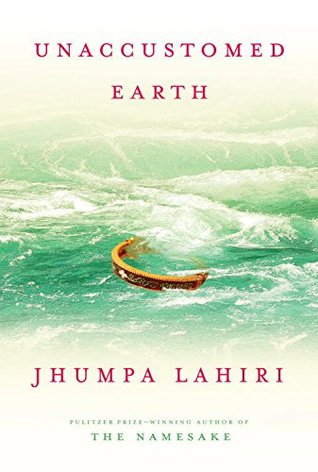More on this book
Community
Kindle Notes & Highlights
“Gasoline is expensive here,” he added. He said this matter-of-factly, but still she felt the prick of his criticism as she had all her life, feeling at fault that gas cost more in Seattle than in Pennsylvania.
It was the room Ruma was most proud of, with its soapstone counters and cherry cupboards. Showing it off to her father, she felt self-conscious of her successful life with Adam, and at the same time she felt a quiet slap of rejection, gathering, from his continued silence, that none of it impressed him.
There were times Ruma felt closer to her mother in death than she had in life, an intimacy born simply of thinking of her so often, of missing her. But she knew that this was an illusion, a mirage, and that the distance between them was now infinite, unyielding.
But death, too, had the power to awe, she knew this now—that a human being could be alive for years and years, thinking and breathing and eating, full of a million worries and feelings and thoughts, taking up space in the world, and then, in an instant, become absent, invisible.
He did not want to be part of another family, part of the mess, the feuds, the demands, the energy of it. He did not want to live in the margins of his daughter’s life, in the shadow of her marriage. He didn’t want to live again in an enormous house that would only fill up with things over the years, as the children grew, all the things he’d recently gotten rid of, all the books and papers and clothes and objects one felt compelled to possess, to save. Life grew and grew until a certain point. The point he had reached now.
I fell in love with Deborah, the way young girls often fall in love with women who are not their mothers.
She smiled at him, and he felt her love for him suddenly—that unshakable belief in him and in their marriage that she never questioned, never denigrated, as he had tonight.
Fury had raged through her all night; that storm cloud had unleashed its rain, and now she was simply tired.
These men weren’t really interested in her. They were interested in a mythical creature created by an intricate chain of gossip, a web of wishful Indian-community thinking in which she was an aging, overlooked poster child for years of bharat natyam classes, perfect SATs.
I was furious that you had told me, and that you had not told me, feeling at once burdened and betrayed, hating you all over again.
I had never traveled alone before and I discovered that I liked it. No one in the world knew where I was, no one had the ability to reach me. It was like being dead, my escape allowing me to taste that tremendous power my mother possessed forever.
looking at the giant sarcophagus of the bride and groom enclosed in a box of glass, she found herself in tears. She couldn’t help but think of Navin. Like the young smiling couple sitting affectionately on top of a shared casket, there was something dead about the marriage she was about to enter into. And though she knew it had every chance, over the years, of coming to life, on her way home, in the yellow light of evening, she was conscious only of its deadness.
She also sensed an indifference; they were among a handful of people who seemed not to belong to Volterra, and she felt that the people who lived there were waiting for them, politely but firmly, to pass on.


